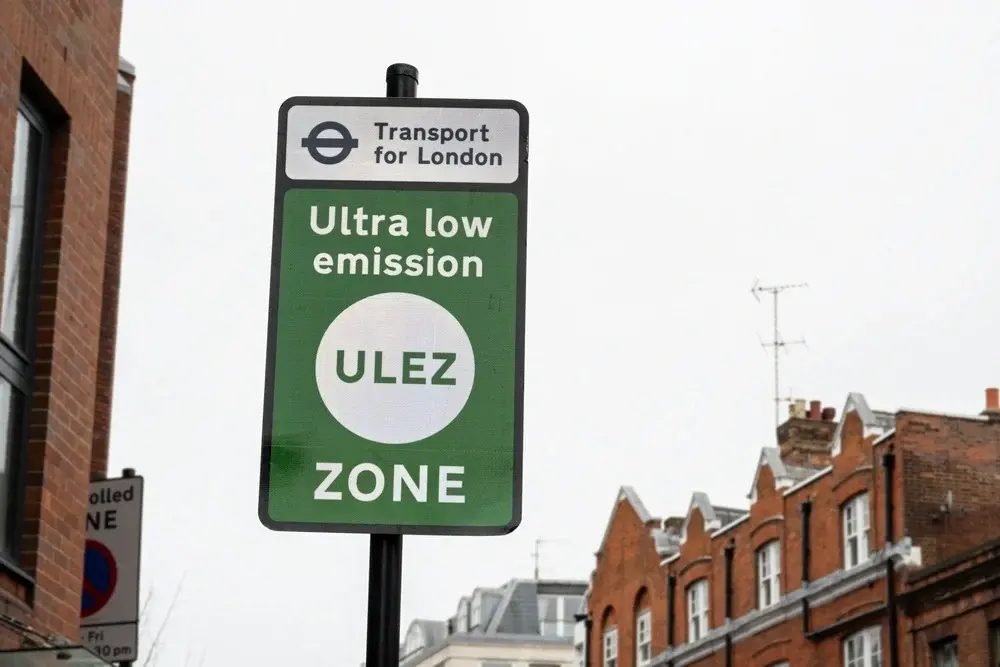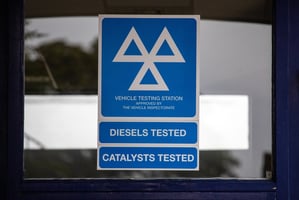These days, being able to check a vehicle’s MOT history has never been easier. Whether you want the...
The Ultra Low Emission Zone (ULEZ) has become a defining feature of the UK’s approach to improving air quality in many urban areas. According to the Transport for London website, the ULEZ has already helped to reduce harmful nitrogen oxides by 46% in central London and 21% in inner London. While the initiative certainly has environmental benefits, it has also sparked significant debate amongst car owners. Here we explore how ULEZ could affect the owners and drivers of both new and classic Defenders.

What is ULEZ?
ULEZ started in 2019 and was designed to reduce air pollution by charging vehicles that do not meet specific emissions standards. Initially introduced in central London, the zone was expanded to cover a larger area including all London boroughs and much of the area inside the M25. The ULEZ operates 24 hours a day, 7 days a week, every day of the year (except Christmas Day).
Vehicles that do not comply with Euro 4 standards for petrol and Euro 6 standards for diesel are subject to a daily charge, which is currently £12.50. There are specific exemptions for some classic and historic cars, however, which we detail here.
The two exemption categories affecting classic cars are:
1. All vehicles built before 1st January 1973
2. Vehicles over 40 years old that have been successfully registered with the DVLA as having a historic vehicle tax class
Many older Defenders will fit into one of these categories and will therefore not have to pay. Before it was named the Defender (in 1990) these cars were known by alternative names, such as the Land Rover One Ten and the Ninety.
Of note, if your Defender meets the above criteria but was registered outside of the UK, it will still be exempt from the charges but you need to register it first with Transport for London before travelling in the ULEZ zone.
You can check if you need to pay for your particular car here, on the Transport for London website. Using this page also tells you if you need to pay the Congestion Charge, and tells you about any charges due under LEZ (Low Emission Zone) too. Also, on the website there is a search map, so you can see if the area you intend to drive in is covered by ULEZ.

What’s the impact on some Defender owners?
Well, there’s obviously the financial burden. The daily ULEZ charge can add up quickly for car owners who live within - or need to travel into - the zone frequently. With a charge of £12.50 per day for cars, the cost becomes somewhat prohibitive for regular use, effectively limiting vehicles to potentially just occasional outings in some cases.
If you forget or otherwise don’t pay the charge, there is a penalty charge of £180 (which is halved if you pay with 14 days.)
There’s the element of confusion as to where the ULEZ is in operation if you are not used to the area you are driving in. If you are not sure, you can access the details here. The rules also only apply to cars which are driven, so if you are parked and don’t move, it’s not a problem. Be aware, too, that the daily charge runs from midnight to midnight. If you drive within the ULEZ area across two days, for example before midnight and after midnight, you will need to pay two daily charges.
Clean air zones are being or have also been introduced in other areas outside of London, for example in parts of Birmingham, Bristol and Glasgow, so clean air charges aren’t just limited to the south of the country.
There are some discounts available to some people, for example certain NHS patients can be reimbursed, and disabled people whose vehicles are registered with the DVLA as having 'disabled' or 'disabled passenger vehicle' tax class currently benefit from a grace period which exempts them from paying the ULEZ charge until the 24th October 2027.
This is an interesting thought - the charge to use certain cars in the zone could potentially affect their market value. Prospective buyers may be deterred by the additional costs associated with driving these vehicles in ULEZ zones - who knows what the impact may be, especially if more clean air zones are introduced in the future.
You can make alterations to your car to make it compliant with emissions standards, by retro-fitting a new Selective Catalytic Reduction (SCR) system and Adblue, for example.

Looking ahead
Will there be any future additional exemptions or incentives for classic/historic cars, perhaps? We don’t know yet, but hopefully those deciding the rules would look at adding exemptions for low-emission retrofitting of classic cars. Also, there have been calls for event-based exemptions or temporary waivers during significant events, which could help those attending meets and exhibitions.
While the environmental benefits are seemingly clear, the financial costs of the scheme are certainly going to be a burden for some. It’s essential that there is an ongoing dialogue between policymakers and drivers to ensure that the push for cleaner air does not come at the expense of the many beautiful (and old) cars being driven on our roads today.






